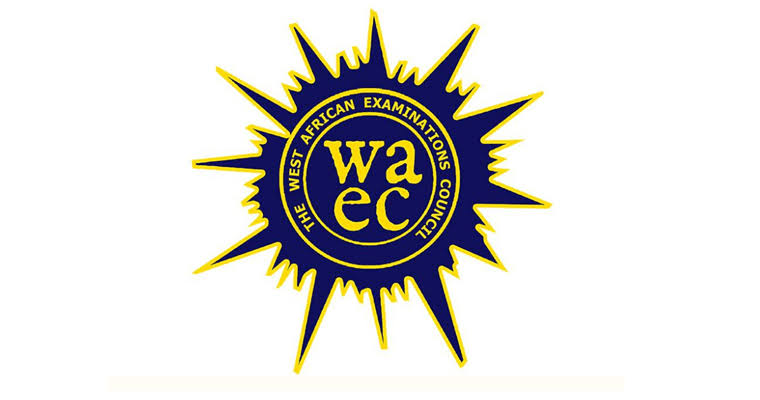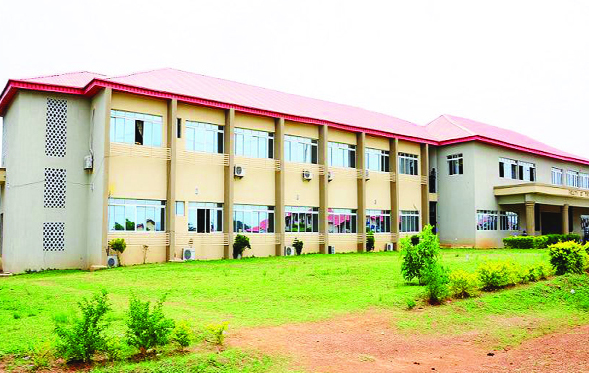Top Guide on How to Gain Admission to Study in Portugal 2025
Want to study in Portugal in 2025? Explore our step-by-step guide on how to gain admission to study in Portugal in 2025.
Learn about requirements, top universities, the application process, scholarships, and visa details.
Portugal is quickly becoming a top choice for international students seeking a high-quality education, affordable living, and an enriching cultural experience. If you’re wondering how to gain admission to study in Portugal in 2025, this comprehensive guide will walk you through every important step. Whether you’re pursuing a bachelor’s, master’s, or doctoral program, Portugal offers a range of options to suit diverse academic interests and career goals.
SEE ALSO: NYSC Arrears Payment: What You Need to Know

Why Study in Portugal in 2025?
Portugal offers a compelling mix of academic excellence, vibrant student life, and Mediterranean charm. Here are some reasons why studying in Portugal is a great idea in 2025:
- Top-Ranked Universities like the University of Lisbon and University of Porto, consistently recognized for research and teaching quality.
- Affordable Tuition Fees compared to other Western European countries, allowing students to earn internationally respected degrees without incurring massive debt.
- English-Taught Programs, especially at the postgraduate level, are making it accessible to non-Portuguese speakers.
- Mild Climate and Scenic Locations are perfect for studying and leisure, from the beaches of the Algarve to the historic streets of Porto.
- Growing International Community with thousands of students from around the world, fostering a multicultural and inclusive learning environment.
- Safe and Welcoming Environment: Portugal is consistently ranked among the safest countries in the world, with low crime rates and a high quality of life.
- Rich Cultural Heritage: Students enjoy access to UNESCO World Heritage sites, traditional festivals, and an artistic, culinary, and musical heritage that enriches the overall experience.
- Innovative Research Opportunities: Portugal invests heavily in research and development (R&D), particularly in areas such as renewable energy, biomedical sciences, and information technology.
- Student Support Services: Universities in Portugal often offer orientation programs, language courses, housing support, and academic advising specifically designed for international students.
SEE ALSO: JAMB Syllabus for Biology 2025/2026 | Download PDF
Overview of Portugal’s Higher Education System
The higher education system in Portugal comprises both public and private institutions, offering a diverse range of programs in the humanities, sciences, engineering, business, and the arts. Portugal’s educational framework is aligned with the European Higher Education Area (EHEA), ensuring compatibility with universities across Europe through the Bologna Process.
Key Institutions
Some of the most reputable and internationally recognized institutions in Portugal include:
- University of Lisbon – The largest university in Portugal, known for its multidisciplinary research and innovation.
- University of Porto – Highly ranked in engineering, business, and life sciences.
- University of Coimbra – One of the oldest universities in Europe, rich in academic tradition and architectural heritage.
- NOVA University Lisbon – A modern university with strong programs in social sciences, business, and public health.
- University of Aveiro – Known for its focus on technology, marine sciences, and close ties with industry.
Types of Degrees
Portugal offers a three-cycle degree structure as part of the Bologna system:
- Licenciatura (Bachelor’s Degree): Usually takes 3-4 years and provides foundational knowledge in a specific field.
- Mestrado (Master’s Degree): Typically 1-2 years and designed to deepen specialization or shift academic focus.
- Doutoramento (PhD): Ranges from 3 to 5 years and involves original research and a dissertation, often leading to academic or high-level professional careers.
There are Integrated Master’s Programs, particularly in fields such as engineering and architecture, which combine bachelor’s and master’s studies into a single 5-6 year course.
Portugal’s universities also offer professional diplomas and short-term certificates that can enhance employability or prepare students for further study.
SEE ALSO: JAMB Cut off Mark for Biochemistry 2025 Admission
Admission Requirements for Studying in Portugal
Undergraduate Programs
To gain admission to undergraduate programs in Portugal in 2025, students typically need to meet the following requirements:
- A High School Diploma or Equivalent: This must be recognized by the Portuguese Directorate-General for Higher Education (DGES). Some students may be required to undergo credential evaluation.
- Proof of Language Proficiency: If the program is taught in Portuguese, proficiency at the B1/B2 level is usually required. For English-taught programs, IELTS scores of 6.0 or above or TOEFL scores are often required.
- Entrance Examination: Depending on the institution, you may need to take a local entrance exam or submit national scores (e.g., SAT, A-levels, IB, or ENEM for Brazilian students).
- Passport and Visa Documents: Ensure your travel documents are valid and ready for submission with your visa application.
- Portfolio (for Arts and Architecture Programs): Creative disciplines may require the submission of a portfolio or audition material.
Postgraduate Programs
Applicants for master’s and doctoral studies must fulfil more detailed academic and professional criteria, including:
- Recognized Undergraduate Degree: Must be in a relevant subject area. Some programs may require a minimum GPA or specific coursework.
- Academic Transcripts: Official records translated into Portuguese or English, if necessary.
- Curriculum Vitae (CV): Including academic background, research experience, internships, and extracurricular activities.
- Motivation Letter: Explaining why you are applying, your goals, and how the program fits into your future career plans.
- Letters of Recommendation: Usually 2-3 from professors or professionals familiar with your academic or research capabilities.
- Language Proficiency: IELTS, TOEFL, or Cambridge scores for English-taught courses; Portuguese proficiency for local language programs.
- Research Proposal (for PhD): A well-structured research plan is required for doctoral applicants.
- Professional Experience: Some business or specialized programs may require prior work experience.
SEE ALSO: I Stayed in UNICAL Hostel with Mosquitoes Says Senate President Akpabio
How to Apply to Portuguese Universities
Follow these steps to apply to study in Portugal in 2025:
1. Research Programs and Universities
Use platforms like Study in Portugal, university websites, and international education fairs to explore available degree programs. Evaluate based on course content, language of instruction, location, cost, and reputation.
2. Check Entry Requirements
Each university and academic program may have its own specific entry requirements. Always verify updated criteria on the official university website or through the DGES (Direção-Geral do Ensino Superior).
3. Prepare Required Documents
Ensure all necessary documents are gathered and translated if needed:
- Certified academic transcripts and diplomas
- Translations of all documents (Portuguese or English)
- Valid passport and ID
- Proof of language proficiency (IELTS, TOEFL, or Portuguese exam)
- CV, motivation letter, and reference letters (for postgraduate applicants)
4. Submit Your Online Application
Most universities have their own online application portal. Some may also require you to register and apply through the DGES platform, especially for undergraduate programs.
5. Pay the Application Fee
Application fees typically range from €50 to €100, depending on the institution and program.
6. Wait for the Admission Decision
After submission, your documents will be reviewed. Some programs may invite you for an interview (online or in person). Successful applicants will receive an official admission letter or a conditional offer.
Student Visa Requirements for Portugal
Once you’ve secured admission, you’ll need to apply for a Type D Student Visa at the nearest Portuguese consulate or embassy in your home country. This visa is essential for any stay longer than 90 days. Here’s what you need to provide:
- Valid Passport: Your passport should be valid for at least six months beyond your intended stay.
- Acceptance Letter from a Portuguese University: A formal admission or enrollment document issued by the institution.
- Proof of Accommodation: This could include a rental contract, university housing confirmation, or a letter from a host family.
- Proof of Financial Means: Evidence that you can support yourself financially throughout your studies. This may include bank statements, scholarship letters, or a financial support declaration from a sponsor.
- Health Insurance: Comprehensive travel or international student health insurance valid in Portugal.
- Criminal Record Certificate: A recent police clearance certificate from your home country or countries of residence.
- Completed Visa Application Form and Passport Photos as specified by the consulate.
Visa Interview: In some cases, you may be required to attend an interview. Be prepared to discuss your study plans and show ties to your home country.
Processing Time: Visa processing typically takes 60 to 90 days, so apply well in advance. Some consulates may also experience seasonal delays, so early action is highly recommended.
After Arrival: Once in Portugal, students must apply for a residence permit at the local immigration office (SEF – Serviço de Estrangeiros e Fronteiras) within 90 days.
SEE ALSO: When Will JAMB Result Be Out for 2025?
Tuition Fees and Cost of Living in Portugal
Tuition Fees (Approximate per Academic Year)
- Bachelor’s Programs: €950 to €1,500
- Master’s Programs: €1,200 to €3,000
- PhD Programs: €2,500 to €3,500
Private universities and specialized programs may charge higher fees, particularly in fields like business or medicine.
Cost of Living
Portugal is considered one of the more affordable countries in Western Europe, making it an excellent option for budget-conscious students.
Estimated Monthly Expenses:
- Rent: €200–€500 (depending on city and housing type)
- Food: €150–€250
- Transportation: €30–€50 (monthly public transport pass)
- Utilities & Internet: €50–€100
- Books & Supplies: €20–€50
- Leisure & Miscellaneous: €50–€100
Total Monthly Budget: Typically ranges from €600 to €900, with Lisbon and Porto being on the higher end of the scale, while smaller towns offer more affordable living.
Students can also take advantage of student discounts for transportation, museums, cinema, and cultural events.

Scholarships and Financial Aid
Several scholarships are available to help international students gain admission to study in Portugal:
- Erasmus+ Scholarships: Funded by the European Union, these support exchange and degree students from partner countries.
- Sasakawa Young Leaders Fellowship Fund (SYLFF): Offers scholarships for graduate-level leadership and social science programs.
- Portuguese Government Grants: Administered through institutions like Camões Institute and the Directorate-General for Higher Education.
- University-Specific Scholarships: Many universities offer merit-based, need-based, or research assistantship grants for international students.
Other possible funding sources include:
- Private Foundations and NGOs such as the Calouste Gulbenkian Foundation.
- Bilateral Agreements between Portugal and other countries, which may include tuition waivers or stipends.
Check with each university’s international office for eligibility criteria, deadlines, and application procedures for financial aid.
Tips to Improve Your Chances of Admission
- Apply Early: Admission and scholarship deadlines can vary, and early applications have a better chance.
- Tailor Your Motivation Letter: Customize each letter to the specific university and program.
- Highlight International or Volunteer Experience: These show adaptability, leadership, and social commitment.
- Prepare for Interviews: Some programs may include a personal or academic interview as part of the selection process.
- Learn Basic Portuguese: Even for English-taught programs, basic language skills show initiative and help with daily life in Portugal.
SEE ALSO: How to Create NYSC Profile: Step-by-Step Guide for Graduates
Final Thoughts on How to Gain Admission to Study in Portugal
Understanding how to gain admission to study in Portugal in 2025 is the first step in a life-changing journey. With competitive tuition fees, top-quality universities, and a welcoming atmosphere, Portugal is an excellent choice for international education.
Start preparing your application early to meet all deadlines and increase your chances of admission.
Ready to begin your study journey in Portugal? Start organizing your documents, researching programs, and applying today!






